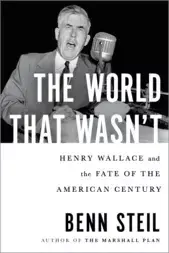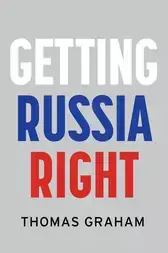- China
- RealEcon
-
Topics
FeaturedInternational efforts, such as the Paris Agreement, aim to reduce greenhouse gas emissions. But experts say countries aren’t doing enough to limit dangerous global warming.
-
Regions
FeaturedIntroduction Throughout its decades of independence, Myanmar has struggled with military rule, civil war, poor governance, and widespread poverty. A military coup in February 2021 dashed hopes for…
Backgrounder by Lindsay Maizland January 31, 2022
-
Explainers
FeaturedDuring the 2020 presidential campaign, Joe Biden promised that his administration would make a “historic effort” to reduce long-running racial inequities in health. Tobacco use—the leading cause of p…
Interactive by Olivia Angelino, Thomas J. Bollyky, Elle Ruggiero and Isabella Turilli February 1, 2023 Global Health Program
-
Research & Analysis
FeaturedAmazon Best Book of September 2024 New York Times’ Nonfiction Book to Read Fall 2024 In this “monumental and impressive” biography, Max Boot, the distinguished political columnist, illuminates…
Book by Max Boot September 10, 2024
-
Communities
Featured
Webinar with Carolyn Kissane and Irina A. Faskianos April 12, 2023
-
Events
FeaturedPlease join us for two panels to discuss the agenda and likely outcomes of the North Atlantic Treaty Organization (NATO) Summit, taking place in Washington DC from July 9 to 11. SESSION I: A Conversation With NSC Director for Europe Michael Carpenter 12:30 p.m.—1:00 p.m. (EDT) In-Person Lunch Reception 1:00 p.m.—1:30 p.m. (EDT) Hybrid Meeting SESSION II: NATO’s Future: Enlarged and More European? 1:30 p.m.—1:45 p.m. (EDT) In-Person Coffee Break 1:45 p.m.—2:45 p.m. (EDT) Hybrid Meeting
Virtual Event with Emma M. Ashford, Michael R. Carpenter, Camille Grand, Thomas Wright, Liana Fix and Charles A. Kupchan June 25, 2024 Europe Program
- Related Sites
- More
U.S. Foreign Policy
-
Schumer 's Attack on an Ally at WarSen. Schumer's call for Israeli Prime Minister Netanyahu to be pushed out of office is an unprecedented attack on a democratic ally at war and would turn Israel into an American colony.
-
Five Months of War: Where Israel, Hamas, and the U.S. StandThe death toll from the Israel-Hamas war continues to mount, with no lasting settlement in sight. Meanwhile, concerns about humanitarian catastrophe and regional violence are spreading.
-
The Future of GazaA new proposal for the future of Gaza urges formation of an International Trust for Gaza Reconstruction.
-
United States Lacks Strategic Clarity on the Horn of AfricaThe recent flurry of congressional and executive attention on Sudan needs to be married to a long-term strategy toward the Horn of Africa.
-
Leadership Change in RussiaVladimir Putin’s grip on power in Russia does not appear as ironclad as it once did. Liana Fix and Maria Snegovaya recommend that the United States prepare for potential leadership change in Moscow and develop response strategies with its allies to mitigate fallout.
-
Why China-Taiwan Relations Are So TenseDifferences over Taiwan’s status have fueled rising tensions between the island and the mainland. Taiwan has the potential to be a flash point in U.S.-China relations.
-
Is the Path to a Palestinian State "Irreversible?"Secretary of State Blinken's call for “a concrete, time-bound and irreversible path” to a Palestinian state presents serious dangers to Israel and to Palestinians as well.
-
The World That Wasn’t
![]() A dramatic and powerful new perspective on the political career of Henry Wallace—a perspective that will forever change how we view the making of U.S. and Soviet foreign policy at the dawn of the Cold War.
A dramatic and powerful new perspective on the political career of Henry Wallace—a perspective that will forever change how we view the making of U.S. and Soviet foreign policy at the dawn of the Cold War. -
The Humbling of Henry KissingerThe truth is that his tenure as secretary of state was often rocky, and as full of setbacks as acclaim.
-
The Legacy of Henry KissingerThe passing of America’s preeminent foreign-policy thinker and practitioner marks the end of an era. Throughout his long and extraordinarily influential career, Henry Kissinger built a legacy that Americans would be wise to heed in this new era of great-power politics and global disarray.
-
Global Health Security and Diplomacy in the Twenty-First CenturyThe Global Health Security and Diplomacy in the Twenty-First Century symposium is cohosted by the Council on Foreign Relations and the recently launched Bureau of Global Health Security and Diplomacy at the U.S. Department of State. This event convenes a globally representative set of influential policymakers, practitioners, and thought leaders to discuss the global need for better cooperation, coordination, and communication in tackling health security threats, which also threaten national security. Speakers include U.S. Global AIDS Coordinator and Senior Bureau Official for Global Health Security and Diplomacy John Nkengasong, former Chief Medical Advisor to the President Anthony Fauci, Director of U.S. Centers for Disease Control and Prevention Mandy K. Cohen, and UNAIDS Executive Director Winnie Byanyima. Speakers making welcoming remarks include U.S. Secretary of State Antony Blinken (pre-recorded video message to participants), U.S. Ambassador to the United Nations Linda Thomas-Greenfield, and Director-General of the World Health Organization Tedros Adhanom Ghebreyesus. This event is part of Thomas J. Bollyky's Global Health, Economics, and Development Roundtable Series. Please click here to view the full symposium agenda.
-
Maduro Regime To Accept Venezuelans Returned Home: Why Now?The Biden administration has announced that the Maduro regime will henceforth accept the return of Venezuelans deported from the United States. Will sanctions relief will soon follow?
-
100 Conservative Leaders Press Support for UkraineDespite some reports that conservatives in the United States favor abandoning Ukraine, 100 conservative leaders just published an open letter of support.
-
-
Further Downhill for African Democracy EffortsDemocracy is decidedly worse for wear in Africa following a set of sham elections in Zimbabwe and Gabon, with few bright spots in the upcoming electoral calendar.
 Online Store
Online Store


